Research Lab Results
-
Robert Bulat Lab
The Robert Bulat Lab performs clinical research on gastroparesis and other motility disorders.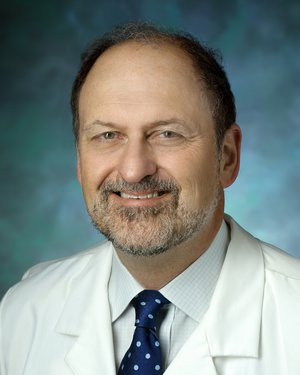
-
Robert Gilman Lab
Research in the Robert Gilman Lab focuses on disease control. Our work led to the development of microscopic-observation drug-susceptibility (MODS), a rapid tuberculosis diagnostic technique. We continue to conduct infectious disease research based at Peru’s Universidad Peruana Cayetano Heredia.
-
Robert Greenberg Lab
Researchers in the Robert Greenberg Lab examine anesthesiology and critical care-related topics that include critical airway management, non-invasive fetal monitoring, neural blockade monitoring, pediatric acute pain management, cuffed oropharyngeal airway (COPA), pain informatics, and pediatric pain education and innovation.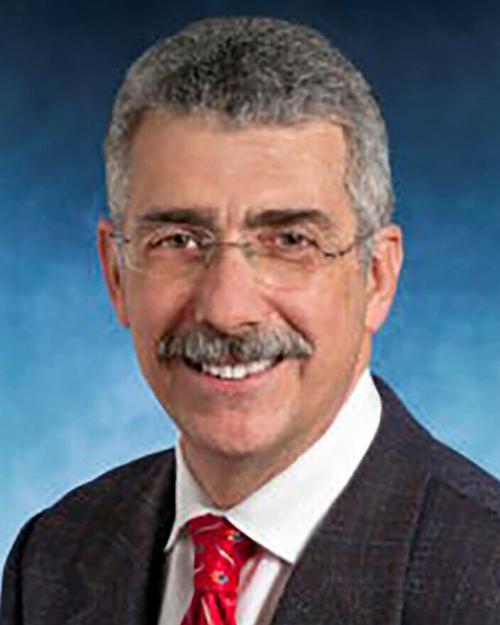
-
Robert H. Brown Lab
Work in the Robert H. Brown Lab explores several topics within pulmonary physiology, with a long-term goal of understanding the structural changes in the lungs that lead to the pathophysiology of lung disease. Our core studies examine the structure-function relationship of pulmonary airways and vessels as well as their role in chronic obstructive pulmonary disease (COPD) and reactive airway disease. Recent research has involved studying the mechanisms and treatment of COPD progression, new methods for treating asthma, and lung inflation and airway hyperresponsiveness. We are also exploring the impact of HIV infection on the etiology of lung disease and the pathophysiologic consequences of lung distention. -
Robert Lawrence Lab
Research in the Robert Lawrence Lab examines how industrial agriculture, food security and human rights affect the environment. -
Robert Siliciano Laboratory
Research in the Robert Siliciano Laboratory focuses on HIV and antiretroviral therapy (ART). ART consists of combinations of three drugs that inhibit specific steps in the virus life cycle. Though linked to reduced morbidity and mortality rates, ART is not curative. Through our research related to latently infected cells, we've shown that eradicating HIV-1 infection with ART alone is impossible due to the latent reservoir for HIV-1 in resting CD4+ T cells. Our laboratory characterized the different forms of HIV-1 that persist in patients on ART. Currently, we are searching for and evaluating drugs that target the latent reservoir. We are also developing assays that can be used to monitor the elimination of this reservoir. We are also interested in the basic pharmacodynamic principles that explain how antiretroviral drugs work. We have recently discovered why certain classes of antiretroviral drugs are so effective at inhibiting viral replication. We are using this discovery along with experimental and computational approaches to develop improved therapies for HIV-1 infection and to understand and prevent drug resistance. Finally, we are studying the immunology of HIV-1 infection, and in particular, the ability of some patients to control the infection without ART.
-
Robert Wise Lab
The Robert Wise Lab conducts clinical trials to study chronic obstructive lung diseases (COPD). We investigate inhaled corticosteroids in patients with mild to moderate COPD and the effectiveness of anti-inflammatories in allowing lung growth in mild to moderate asthmatic children. Our research includes exploring the efficacy of various treatments for asthmatic women who are pregnant and of lung-volume reduction surgery for emphysema patients. We also conduct studies of the clinical epidemiology, pathobiology and treatment of interstitial lung disease in patients with scleroderma.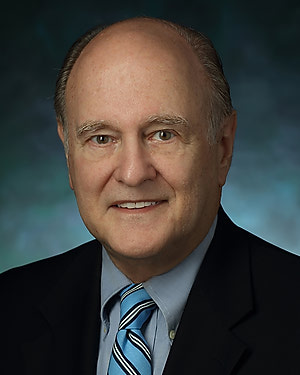
-
Roberto Salvatori Lab
Research in the Roberto Salvatori Lab focuses on the genetic causes of isolated growth hormone deficiency (GHD), consequences of untreated GHD, and cortisol excess and deficiency. Current work explores GHD’s relation to obesity and indicates that Cushing's syndrome may be under-recognized in patients undergoing bariatric surgery. We recently took part in a retrospective, multicenter, international study to characterize a large series of pituitary gigantism patients, a condition that has not been studied previously in a standardized way.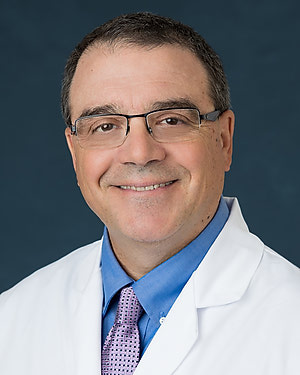
-
Roger Johns Lab
Investigators in the Roger Johns Lab are examining the molecular mechanisms behind the onset and continuation of chronic pain, particularly neuropathic pain. This work has led to a better understanding of the vast network of molecules at neuronal synapses, particularly the postsynaptic density (PSD), which is key to the propagation of pain signals. We're working to develop new analgesics that interfere with the PSD protein interactions in an effort to better treat patients who suffer from chronic pain.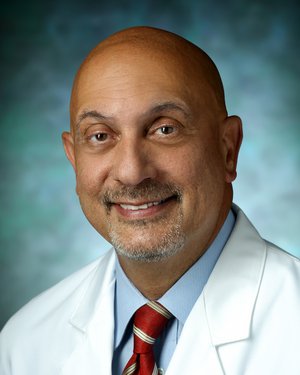
-
Romsai Boonyasai Lab
Research in the Romsai Boonyasai Lab focuses on systems-based approaches for improving health care quality, including reducing harm during care transitions after hospital discharge and improving outcomes related to hypertension and other chronic diseases. We recently have focused on developing and evaluating practice-based tools for improving the accuracy of blood pressure measurement, overcoming clinical inertia to treatment, and engaging patients in self-management of their health.

